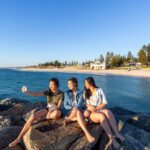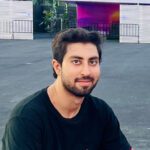The proudest moment Isaiah Attkins has so far experienced in his twenty one years, was a 7.00 am phone call from the Curtin Medical School offering him a place in the Bachelor of Medicine, Bachelor of Surgery.
Inspired by his Nanna, who worked as a nurse, studying medicine was a childhood dream of Isaiah’s.
“I always wanted to be a doctor from a young age. I went to the hospital with my Nanna a lot as a child as she was a nurse. I would meet all the doctors, and they were the nicest people around and always had time for everyone,” he says.
“I always remembered a lot of people saying they were the smartest and hardest-working people, and I felt like I really wanted someone to look at me in that way. I always wanted to be the kid that helped when someone was hurt, and put the band aid on. This stayed with me my whole life.”
According to the Australian Indigenous Doctors’ Association there are 97,168 doctors in Australia, 204, or 0.21 percent, of whom are Indigenous. To reach parity of 3 percent of practicing clinicians, Australia needs 2,711 Indigenous doctors. Indigenous health, is one of the key areas in the Federal Government’s Closing the Gap campaign.
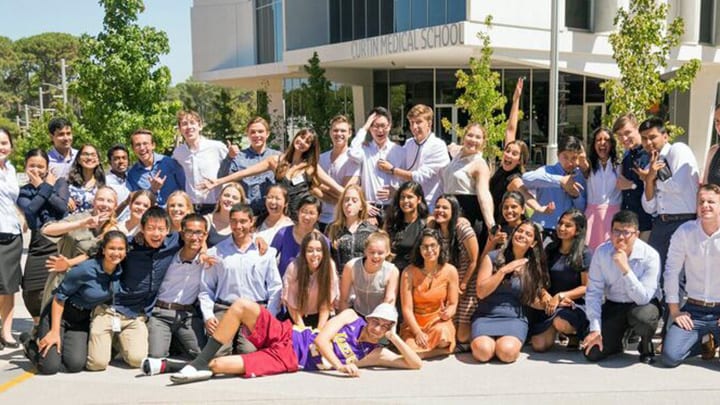
Shrinking dreams
As Isaiah travelled through the education system as an Indigenous student, however, he was told that his dreams of studying medicine were ill-advised, and he should be realistic and focus on getting a trade instead.
“In Year 10 of high school in Darwin, we talked to teachers about what we wanted to do as a job and, due to being Aboriginal, I was put in a ‘special group’. When I said I wanted to be a doctor, I was told it would be too hard and I would never make it there, and I was setting myself up to fail and I should look for a tradie job I liked,” he says.
“So I kind of gave up and only finished school due to my Clontarf program pushing me to come, and only being allowed to play schoolboys’ rugby if I was at school. In Year 12, I barely scraped by with being in the bottom 10 per cent of ATAR scores in the Northern Territory and South Australia.”
One of the more obvious problems with the school’s advice, was that Isaiah was not interested in becoming a tradesperson, and ended up hating every trade and manual job he tried. After leaving school, he worked as a pool cleaner, a general trades’ assistant on wharfs, a carpenter and in the mines. While he thoroughly disliked the work, he had the great good fortune of having grandparents who counselled him to return to study, so he could spend his life doing something he loved, and a mother and a stepfather who believed in him.
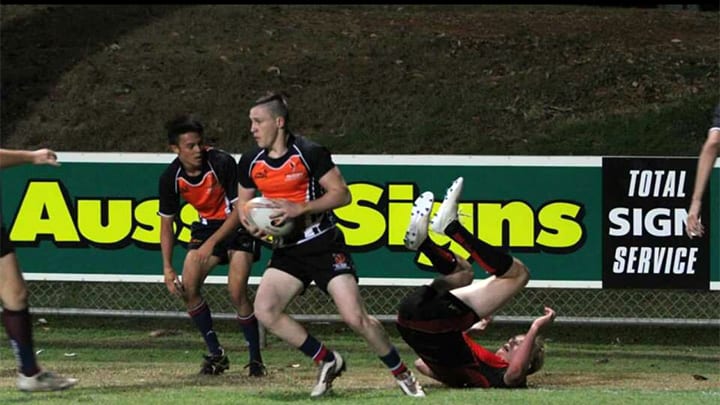
Serendipity, support and alternative pathways
His family had given him sage advice, and Isaiah’s thoughts turned once again to working in a health-related field, but his ATAR meant he was not eligible for the majority of Health Sciences courses. What he was eligible for was Curtin’s Enabling Course, which he enrolled in under the guidance of Course Co-ordinator Sheldon Smith. It was a serendipitous decision that ultimately put him on the path to achieving his childhood dream: studying medicine.
“The enabling program allows you to rebuild your ATAR and have some Curtin classes under your belt. I ended up with a 95 percent average across eight units, and was told about the new medicine course,” Isaiah says.
“I said ‘it has to be fate’, so I applied. I needed another semester in Health Sciences, and was accepted into med school this semester and, honestly, I’m still waiting for the day I wake up to find it was a dream, but I know I worked hard to get here and I’m going to work even harder to stay here.”
Despite achieving a 95 percent average in his Enabling Course units, Isaiah’s first year at Curtin was challenging. He didn’t have a laptop or a phone to complete his coursework, so used public facilities to complete his assignments until he could afford to buy a computer.
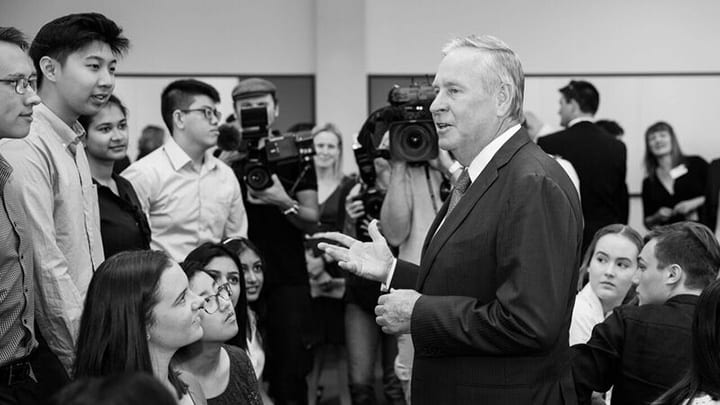
“I was the only student I knew who didn’t have a laptop or a decent phone to do school work on for the first year of my uni course, and I worked hard with my part-time job to save and afford each, but, in the meantime, I would stay late at school or public libraries to use their computers to finish assignments. I was only allowed on the computers for an hour at a time,” he says.
Isaiah credits the support of his girlfriend, Pauline, and various people at Curtin with helping him get through his first difficult year of study, which is in stark contrast to his earlier years at school when he was told that medicine was so far out of his reach that he shouldn’t even try to achieve a place at university.
“I have had so much support over my uni career and, honestly, it is such a good feeling knowing how much people care and want you to succeed compared to my high school,” he says.
“Sheldon Smith, Unit Coordinator for the Enabling Program, always had his door open, was always trying to make the program work for everyone, told everyone about scholarship opportunities, was there as a person, rather than someone high up, who you felt you could actually talk to, and supported everyone and helped everyone if you were willing to put in the effort.
The Centre for Aboriginal Studies helped by supporting me and pushing me to my limits, knowing I could make it, and opening doors and talking to people on my behalf to assist with my career pathway.
Sara Carroll, Director, Students, Faculty of Health Sciences, assisted as a strong person who tells it how it is, always telling me it isn’t going to be easy and I would have to work hard, helping me with enrolment into classes I needed and setting me up to pass.
I was also lucky to be awarded a scholarship from Motorola Solutions, which is helping me to afford books and school supplies and my long trips to uni.”
Isaiah’s greatest support, however, is his family including his Pop, who wants more for his grandson than a life tethered to a job he hates and his Nanna, who first took him to work with her as a nurse, and exposed him to all that medicine could offer as a career.
“My Mum had me young, at nineteen years of age, and she has been there for me throughout everything. My Nanna and Pop who always push me harder, give me the good with the bad, know how much I can achieve and won’t let me rest ‘til I get there,” he says. “My Pop gave me three rules to live my life by which are, always be honest with yourself, respect everyone around you and learn to shut up you might learn something.”
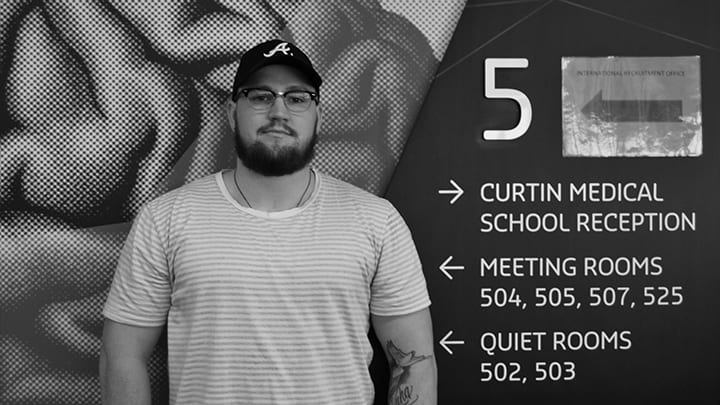
Strategies for success
The keys to Isaiah’s success have been hard work, focus, commitment and support. For those who have dreams to study at university, but aren’t quite sure how to get there, he has some useful advice.
“First of all, talk to people. Sometimes you’ll make friends in high places who can help you along the way, especially people that have done it before as they will have a different way of looking at it,” he says.
“Second, know exactly what you need to do set goals and achieve them, even little goals are all I set to complete. I also have a big goal for the year which is to achieve high distinctions.
Third, never give up. A lot of the time the winner is the person who stays and goes through the hard stuff. There have been so many times where I felt I wasn’t good, smart or strong enough to achieve my goals, but I stuck it out and did it and now when I look back I realise how small all those problems were.
Fourth, always be the hardest worker, always do extra, show up early, actually want to succeed and want to be something, and know you’re good enough because everyone is, some just work harder. Lastly, set yourself up in a supportive environment even if the only person there is you.”
Isaiah is acutely aware that getting into medical school is merely the first step on a long journey of studying and achieving in a competitive and high-pressure environment. Despite the inevitable challenges that lie ahead, he has no doubt he will achieve his goal.
“I have done something not many people thought I could do, and I’ve achieved something I really wanted and worked really hard for…I see myself as a doctor and having either a specialty in emergency medicine or as an orthopaedic surgeon,” Isaiah says.
“And to be honest, I’d probably like to call my old high school and tell them I did it.”

